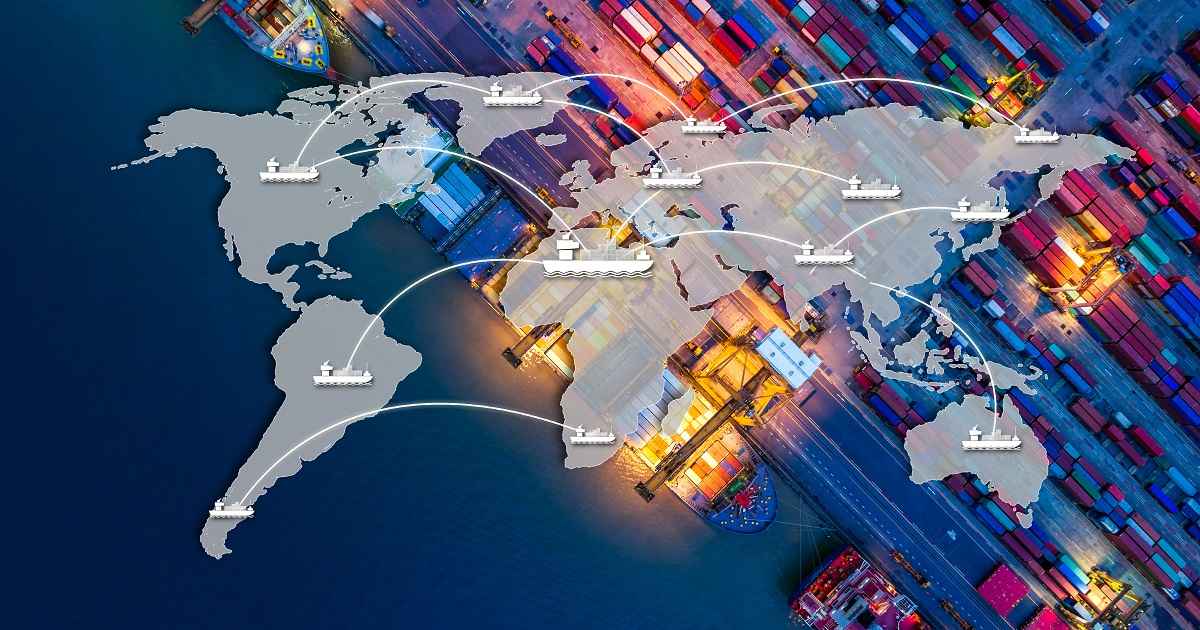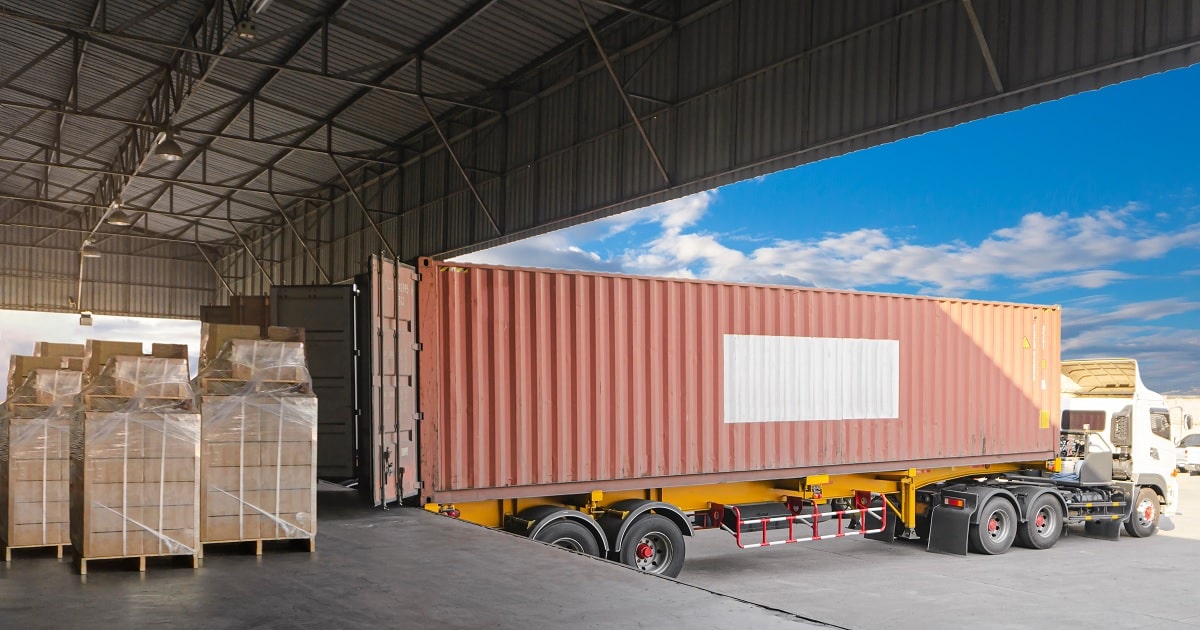
Warehousing and Distribution
Article | July 11, 2023
Autonomous robots have transitioned from a futuristic system that only a few enterprises could afford to a sustainable, well-established solution in a wide assortment of warehouse automation projects in recent years.
With the flourishing transportation and logistics industry and increasing e-commerce penetration worldwide, innovative technologies are revealing promising opportunities throughout the supply chain.
Warehouse Automation: Driving Value in the Supply Chain
Historically, autonomous robots have been used to perform tedious and repetitive tasks, necessitating sophisticated programming for setup and incorporation while lacking the dexterity to easily adjust operations.
As autonomous robots become more intelligent, their setup times decrease, they need less monitoring, and they are able to work alongside their human counterparts. The benefits for the future supply chain are increasing as autonomous robots become more capable of working day and night with more consistent levels of productivity and quality and performing tasks that individuals should not, cannot, or do not want to do.
Autonomous robots drive advancements and add value to the supply chain, primarily by increasing revenue potential and lowering direct and indirect operating costs. Autonomous robots, in particular, can assist:
Boost efficiency and productivity.
Lower risk, error frequency, and rework rates.
Enhance employee safety in high-risk workplaces.
Handle low-value, routine tasks so people can work together on strategic projects that can't be done by machines.
Raise revenue by optimizing order fulfillment rates, and delivery speed, and, ultimately, increasing customer satisfaction.
Sneak Peek into the Future of Autonomous Robot
Autonomous robots are expected to witness strong growth in the coming years. These robots will become more common in the future supply chain as technology advances, allowing them to operate with more human-like abilities. Improvements in haptic sensors, for example, will enable these robots to grasp objects varying from multi-surfaced metal assembly parts to fragile eggshells without requiring changes to robotic components or programming. This will encourage companies operating in the industry to increase their research and development activities and introduce innovative and advanced supply chain technologies.
Read More

Warehousing and Distribution
Article | July 11, 2023
Explore the techniques to improve warehousing and distribution centre. Learn from the best books of logistics and distribution management and enhance warehousing operations and distribution processes.
Efficient warehouse management is crucial in the complex world of distribution and logistics. With various warehouse types serving different purposes, warehouse managers are responsible for ensuring smooth operations, safeguarding valuable goods, and optimizing supply chain units. Building a strong knowledge base is key, and the best way to start is by delving into the top warehouse management books. This article presents a curated list of essential reads that will provide you with a solid foundation in the warehouse and distribution field. From understanding fundamentals to exploring cutting-edge practices, these books help in better decision-making regarding warehousing and distribution operations.
1. Fundamentals of Warehousing & Distribution
Author Name: Material Handling Industry
Fundamentals of Warehousing & Distribution is an essential book for professionals in the warehousing and distribution industry. Published as part of the MHI Career & Technical Education Program, this series of four warehouse management books provides comprehensive knowledge on material handling equipment, information technology tools, and warehouse operations. Volume 1 serves as a foundational guide, introducing readers to modern warehouses and distribution centers' equipment, processes, and operations. With its focus on practical knowledge and industry best practices, this warehouse and distribution book provides readers with the skills and expertise necessary for successful warehouse and distribution management.
2. Warehousing and Distribution Practices
Author Name: xu ji ying
Divided into two parts, Warehousing and Distribution Practices covers seven key areas of the real-world processes for managing storage and implementation of effective distribution strategies. This distribution management book focus on essential knowledge and skills, each section provides valuable insights through logistics standard terms, case studies, knowledge links, and practical application. As one of the best books on logistics and distribution management, it will give you the complete step-by-step guidance to expand and improve warehousing and distribution centre by leveraging the theory shared by xu ji ying.
3. Warehousing And Distribution Management Project Type Tutorial
Author Name: Wang Yu
Warehousing and Distribution Management Project Type Tutorial, a logistics and supply chain management book, revolutionize logistics education with its innovative approach. This comprehensive book goes beyond traditional teaching methods, immersing readers in real-world scenarios and practical projects. Through eleven immersive teaching projects and thirty-two dynamic learning tasks, readers gain hands-on experience in system planning, business management, quality control, inventory operations, technology application, and more. Developed in collaboration with industry experts, this tutorial bridges the gap between theory and practice, empowering logistics professionals to navigate the complexities of warehouse and distribution management. With its unique project-based structure, this warehousing and distribution book delivers a transformative learning experience for aspiring logistics and supply chain industry leaders.
4. Fundamentals of Warehousing & Distribution: Volume 3
Author Name: MHI
Fundamentals of Warehousing & Distribution, a logistics and supply chain management book revolutionizes how logistics professionals perceive warehouses. By delving into captivating case study examples, this book unveils the intricacies of different warehouse configurations, showcasing how cutting-edge equipment and technologies empower diverse order fulfilment strategies. It challenges conventional wisdom by emphasizing that warehouses are no longer mere storage spaces; they have transformed into dynamic hubs that efficiently cater to a wide range of order types, from bulk shipments to individual products. With its ground-breaking insights and practical applications, this volume is a game-changer for industry experts seeking to elevate their warehousing and distribution management skills.
5. Warehouse Distribution and Operations Handbook
Author Name: David Mulcahy
Optimize warehouse operations with this warehouse and distribution management book, Warehouse Distribution and Operations Handbook. With a focus on improving inventory management, reducing costs and enhancing customer experiences, this handbook offers best practices, methods, equipment applications and technologies to utilize in different warehouse and distribution centres. Whether it's industrial, mail-order, or retail facilities, this comprehensive logistics and distribution management book provides the knowledge and strategies to drive profitability and control assets. It is an essential resource for anyone in the logistics industry looking to master distribution management and excel in warehouse operations.
6. Warehouse and Distribution Centre
Author and Editor Name: Robert Mulder & Michiel Kobussen
The warehouse and Distribution Centre is a valuable resource for logistics professionals and architects navigating the evolving landscape of warehouse design. This distribution management book addresses designers' pressing challenges, including cost control, technical requirements, and safety considerations. It offers a comprehensive system of theories, guidelines, and design standards, accompanied by a diverse collection of global warehouse and distribution centre projects. Balancing both the ends of practical reference and inspirational examples, this best book for distribution management equips readers with the knowledge and insights needed to create efficient, innovative, and sustainable warehouse and distribution solutions. It is a must-read for anyone involved in warehousing and distribution management.
7. Warehousing and Distribution Operation Practice
Author Name: peng jian cheng
Rooted in practical vocational education, Warehousing and Distribution Operation Practice is a book that emphasizes integrating theoretical knowledge with functional operations. It provides a hands-on approach to learning, enabling readers to apply their knowledge directly in real-world scenarios. This warehousing and distribution book will give you the required skills and expertise to optimize operational efficiency. With the help of practices shared by peng jian in the warehouse management book, readers will get insights into supply chain management and logistics operations. In addition, it will not only help in improving the processes in the warehouse and distribution but also enhance the overall business.
8. Operations and Supply Chain Management Essentials You Always Wanted to Know
Author Name: Vibrant Publishers & Ashley McDonough
Overcome the complexities of supply chain management and warehouse operations with Operations and Supply Chain Management Essentials You Always Wanted to Know. This engaging book takes you on a captivating journey through the interconnected world of logistics, unveiling the significance of every step in the process. Through a compelling narrative centred around a fictional company and its consumer product, you'll explore the challenges, decisions, and adaptations supply chain professionals face. Gain a deep understanding of supply chain operations, from disruptive forces to practical applications, and discover the importance of interactive business domains.
9. Start your Own Wholesale Distribution Business
Author Name: The Staff of Entrepreneur Media & Christopher Matthew Spencer
Embark on a lucrative journey in the distribution industry with 'Start Your Own Wholesale Distribution Business.' This comprehensive guide, crafted by the experts at Entrepreneur Media, equips you with the essential steps to establish a thriving wholesale operation from the comfort of your home. Discover the art of being an intermediary, connecting manufacturers and retailers to reap profits. Uncover industry-specific strategies, secure funding, identify profitable niches, forge valuable partnerships, and effectively market your business. With insights from experienced wholesale distributors, sample forms, checklists, and worksheets, this warehousing and distribution book is your roadmap to mastering the world of distribution and logistics.
10. Warehouse Management: The Definitive Guide to Improving Efficiency and Minimizing Costs in the Morden Warehouse
Author Name: Gwynne Richards
Discover one of the best books for logistics management in the modern era with 'Warehouse Management: The Definitive Guide to Improving Efficiency and Minimizing Costs in the Modern Warehouse.' This extensively updated fourth edition delves into the latest technologies, such as robotics, cobots, and AI, revolutionizing warehouse operations. Author Gwynne Richards offers expert insights and realistic solutions to optimize warehouse performance and improve efficiency. This effective distribution management book provides strategies and environmental initiatives to ensure a sustainable supply chain. Packed with real case studies and online resources, this book is an essential resource for distribution and logistics professionals.
Conclusion
Warehousing and distribution books have been a valuable resource for reference in the logistics field. While this compilation is not exhaustive, it offers a robust selection of warehouse management books that can effectively address various related challenges. Whether seeking insights into warehouse and transportation management or exploring other facets of supply chain management, logistics management, and procurement, the knowledge gained will be a worthwhile investment for future decision-making.
Read More

Warehousing and Distribution
Article | June 27, 2023
In the past couple of years, supply chain management has witnessed massive disruption. The implications of the pandemic have put pressure on manufacturers to revisit and reimagine how they manage their supply chains. This is why ERP software is so mission critical in supply chain management. It not only helps supply chain chiefs reduce overhead costs but also enhance efficiencies and timely deliveries.Here are a few ways ERP plays a role in supply chain management to keep it moving.
Complete Visibility
Having a 360-degree view of the supply chain is integral to making the right decisions regarding procurement and purchase of materials and inventory. It also allows suppliers to have complete control and course correct when necessary. The insight into the complete supply cycle allows suppliers to respond to customer queries better.
Inventory Tracking
ERPs are truly a one stop shop for manufacturers. They feature extensive inventory tracking on one system so manufacturers are in the loop about inventory control and can better optimize their inventory and resources. For manufacturers it is crucial to know where their inventory is, what has been shipped, what is on hand at all times. With ERPs, it becomes cheaper to keep a stock of the inventory and place orders when it’s running low.
Vendor Performance
Vendor performance is an essential aspect of supply chain management. Being able to compare vendors, measure certain quality and quantity metrics and identify bottle necks help suppliers choose the right vendor as well as gives purchasing departments the power to negotiate for better pricing by consolidating purchase. ERPs allow suppliers to do all the above and more.
Procurement
Procurement of goods can be a complex process if done without the right tools. It also impacts the whole supply chain so it is doubly imperative to ensure the procuring and supply of goods is on time. This is especially true in an environment of custom manufacturing. Add to that the requirement of procuring products with lengthy lead times, manufacturers need to take into considerations product that need to be ordered long before they are even designed. ERPs allow manufacturers to keep all departments including engineering and warehousing to work in sync and plan to procure goods on time.
Real-time Reports
Reporting is labor intensive and can be inefficient when it comes to gathering and processing data. With ERPs, manufacturers can generate reports in real-time and all manual data collection processes are replaced with automation, saving time and money in viewing the insights into the movement of products in the supply chain. It enables manufacturers to get a better understanding and make timely decisions that improve the overall efficiency of the supply chain.
To Conclude
ERP systems offer endless opportunities for manufacturers to improve their processes, save time and resources and optimize and enhance inventory planning. With the right tools, it is possible to establish supply chain management that outperforms and is resilient even in disruptive times.
Read More

Software and Technology
Article | April 19, 2022
The unsurprising investment eagerness of venture capital funds is manifesting in an automation tech glut in the distribution center space. Motivated by enabling trends like labor and land shortages, DCs are amid an automation transformation. Never has defining an automation strategy been more important.
There’s no shortage of VC cash available to logistics tech startups
With a brightly shining spotlight centered on supply chains for the past two years, it’s no surprise that total funding in logistics startups has seen a dramatic increase – growing at over 70% CAGR (Compound Annual Growth Rate). Logistics technology startups raked in over $25 billion in the first three quarters of 2021. That’s more than half of the total amount raised in the whole of 2020, and the incentives for continuing investment persist.
The rise of the of the “micro” DC
“Micro” is a relative term. The size of a micro fulfillment center (MFC) can range from 5,000 to 50,000 square feet. Those reduced square footages allow location in dense urban areas, typically within 40 miles of most of their intended customers. In addition, smaller footprints lead to reduced rents compared to a standard customer fulfillment center (CFC), and the proximity to consumers makes for lower final mile delivery costs. It’s no wonder that MFCs accounted for more than half of the logistics real estate leasing activity in the third quarter of 2021. The “urban logistics” trend is fueling demand for these highly automated, smaller locations.
Vertical logistics integration grows ever more fashionable among retailers
It’s a very “in” thing right now, these acquisitions and partnerships, and they won’t be going out of fashion soon. For example, American Eagle took in Airterra and its parcel optimization tech and third-party logistics (3PL) provider Quiet Logistics.
Target started early. They bought Grand Junction, a software platform that helps retailers determine the best delivery method and track carrier performance, in 2017. Their 2020 acquisition of Deliv brought with it same-day delivery routing technology that they’re now applying to their 2021 purchase, on-demand delivery service Shipt. Target uses Delivs’ tech to generate more efficient routes for Shipt.
Kroger has partnered with UK’s e-grocery specialist Ocado to build automated CFCs across the US and expand their retail footprint. The first CFC opened last spring in Ohio and their second in Florida later that year. They plan to open 20 CFCs over the next three years.
“The proliferation of DC automation solutions and modalities, the rise of MFCs in high-density urban areas, the increasingly automated vertical integration of logistics, and the need to rapidly expand order fulfillment capacity have all, in combination, advanced the need for and application of clearly defined strategies concerning the implementation of automation technology. Do not operate without one.”
Vikas Argod, Principal, Supply Chains Operations practice at Chainalytics
Coping with shortages in warehouse space and labor availability
Third quarter, 2021 US demand for industrial real estate exceeded supply by 41 million square feet. This pushed the national vacancy rate in the fourth quarter down to a record 3.7% in the Cushman & Wakefield US National Industrial MarketBeat report for Q4 2021. Who knows what the record might be when the Q1 2022 report breaks in a few weeks?
On the labor side, the December 2021 US unemployment rate was 3.9%, lower than in December 2019 (3.6%) yet reflecting a tighter labor market. Labor force participation rates are at 61.9%, nearly 2% below February 2020 levels, because of lingering effects of the COVID-19 pandemic. The rising wages and signing bonuses of the past year offer silent testimony to the ongoing constraints in today’s labor market.
Both trends will remain with us for the near- and mid-term, making an automation strategy a necessary part of your DC operations as you attempt to mitigate the effects of both. In addition, warehouse labor shortages are most pronounced in markets with high distribution center densities – Greater Memphis, In-land Empire, Allentown, PA, et al.)
Building the capability to rapidly open DCs at scale
No other factor drives home the need for a coherent DC automation strategy like this one. Let’s explore it with an example.
We’ll call this “A Tale of Two Companies.” One jumped on the automation bandwagon without hesitation – not a bad thing – but applied no strategic groundwork. The other is, well, Amazon.
Company one responded to increasing demand by creating DCs in their usual, strategically located fashion. However, with automation, the lack of a logical strategy led to adopting “the best that money could buy.” So, while these DCs work fine on their own (most of the time), each employs unique implementations from a variety of vendors, with little to no overlap of methods, capabilities, and management procedures between DCs. It’s functional, but a needlessly complicated hodgepodge.
On the other hand, it definitely looks like Amazon has a standardized automation strategy. One that can easily adapt to exploit the individual physical specifications of any space. This makes it simple to arrive and equip it with a standard package of automation solutions. That’s probably how Amazon blanketed the US with over 400 new DCs in just the last two years. They waste no time or money on repeating unnecessary decisions along the way.
Now, we all can’t have the resources of an Amazon. However, the rise of on-demand warehousing companies like Stord and Flexe allow organizations to dramatically decrease the cycle time of standing up additional fulfillment capability.
Developing an automation strategy will feel familiar. It begins with benchmarking, order profiling, current performance drivers, EBIT targets, and theoretical evaluations of newer technology options. All this leads to the creation of a decision framework for DC automation. The goal here is achieving alignment among the leadership on critical capabilities to focus on. These include rapid fulfillment, labor shortage, capacity constraints, safety challenges, or sustainability. Those that commit to this process will start slowly but finish with a strategy that will underpin thousands of decisions and enable sustained rapid growth.
If, in the end, you decide that automation is not right for your operation, that’s a perfectly valid strategy as well. So long as you have a method to evaluate all of your options, and you base your decision on cost-service-sustainability trade-offs, the right strategy for your organization may be no automation at all.
There’s no point in chasing shiny robotic objects if automation makes little sense.
The rise of automation and the multitude of technologies to choose from require the development of a strategic decision framework. Contact us and see how Chainalytics – an NTT DATA company – can be your guide in developing this critical part of your foundation for growth. Our top supply chain talent, enabled by proven, leading-edge digital assets – tools, methods, and content – deliver actionable insights and measurable outcomes to some of today’s largest and most complex supply chains.
Read More